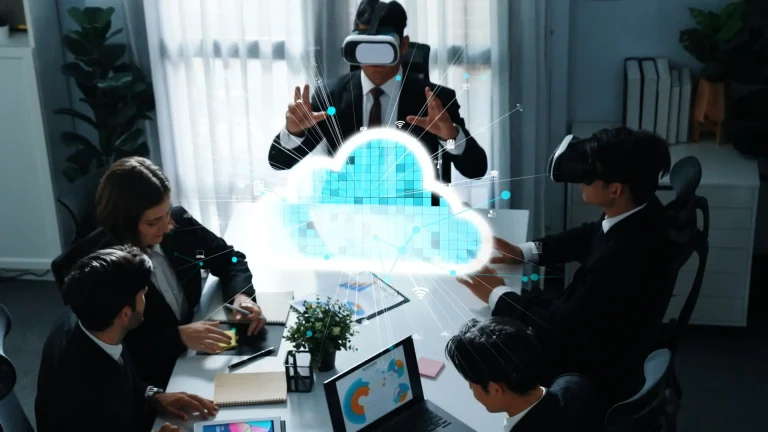IoT in Retail: How Smart Devices are Changing the Shopping Experience

Introduction:
In today’s fast-paced digital age, the retail industry is undergoing a transformation driven by cutting-edge technology. At the heart of this evolution lies the Internet of Things (IoT), a revolutionary force reshaping how consumers interact with brands. With smart devices seamlessly integrating into every facet of retail, from personalized experiences to efficient inventory management, the future of shopping is smarter, faster, and more personalized than ever. This blog explores how IoT is redefining the retail landscape, backed by innovations from leading IoT development companies.
The Intersection of IoT and Retail
The concept of IoT revolves around interconnected devices that communicate and exchange data to improve efficiency and convenience. In retail, IoT serves as a bridge between the digital and physical shopping worlds, enhancing everything from customer engagement to operational processes.
For example, smart shelves equipped with sensors can track inventory in real-time, while IoT-enabled beacons personalize in-store experiences by sending location-based offers to customers’ smartphones. Such innovations not only improve the customer journey but also streamline operations for retailers.
Key Applications of IoT in Retail
Smart Shelves and Inventory Management
Inventory shortages or overstocking have long plagued the retail sector. Smart shelves, equipped with weight sensors and RFID tags, provide real-time updates on inventory levels. Retailers can now:
- Automatically reorder stock before items run out.
- Optimize shelf space by understanding product demand.
- Reduce waste and shrinkage.
Personalized Customer Experiences
The modern consumer demands personalization, and IoT delivers just that. By analyzing customer data from wearable devices, smart kiosks, and shopping apps, retailers can tailor offerings to individual preferences. Examples include:
- Personalized discounts sent via IoT-enabled beacons as customers walk past specific products.
- Customized recommendations on smart mirrors in dressing rooms.
- Voice-activated shopping assistants enhancing the buying journey.
Cashier-Less Checkouts
IoT-powered solutions, such as Amazon Go’s cashier-less stores, demonstrate the potential for frictionless shopping. With smart sensors, cameras, and IoT-enabled payment systems, shoppers can:
- Pick up items and walk out without standing in long checkout lines.
- Receive automatic receipts via their smartphones.
- Enjoy a seamless and efficient shopping experience.
This innovation saves time for customers while reducing operational costs for retailers
Optimized Supply Chain Management
IoT offers unparalleled transparency in supply chain operations. By integrating IoT-enabled trackers, businesses can monitor product journeys from warehouses to store shelves. Benefits include:
- Real-time location tracking for goods.
- Predictive analytics to anticipate delays.
- Automated alerts for temperature-sensitive products.
With these features, IoT development services ensure that the supply chain is efficient, secure, and responsive.
Enhanced Store Operations
From energy management to predictive maintenance, IoT devices optimize store operations by automating routine tasks. Key implementations include:
- Smart thermostats and lighting systems to reduce energy costs.
- IoT-enabled surveillance cameras for improved security.
- Predictive maintenance tools that prevent equipment breakdowns.
Retailers investing in IoT development for such applications not only cut costs but also enhance store reliability.
The Role of IoT Development Companies in Retail Transformation
To unlock the full potential of IoT in retail, businesses must collaborate with reliable IoT development companies. These firms specialize in designing, deploying, and managing IoT ecosystems tailored to retail needs. With expertise in integrating smart devices, cloud platforms, and advanced analytics, they ensure a seamless transition to IoT-driven operations.
Leading IoT developers also provide ongoing support, ensuring that retailers stay ahead of technological advancements while safeguarding data privacy and security.
Challenges in Adopting IoT in Retail
While IoT presents numerous opportunities, its adoption comes with challenges such as:
Data Security: Retailers must ensure that customer data collected by IoT devices is secure and compliant with regulations.
Integration Costs: Initial setup and integration of IoT solutions require significant investment.
Device Interoperability: Ensuring seamless communication between devices from different manufacturers can be complex.
The Future of IoT in Retail
The integration of IoT in retail is just the beginning. Emerging technologies like artificial intelligence, blockchain, and 5G are set to amplify the impact of IoT, making shopping experiences even more immersive. Imagine smart carts that guide you through the store or virtual fitting rooms powered by augmented reality. These futuristic concepts are already in development and will soon redefine retail norms.
Conclusion
IoT has transformed the retail sector and is more than just a fad. Smart gadgets are changing how customers and companies interact, from individualized shopping experiences to effective supply chain management. Investing in IoT development is now necessary for retailers who want to remain competitive.









